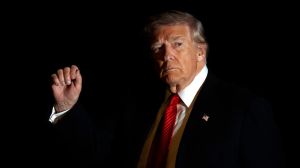Be free and be creative
While altogether banning smoking on the Indian screen, as recently demanded by the Health Ministry, does seem excessive, fully exempting fil...

While altogether banning smoking on the Indian screen, as recently demanded by the Health Ministry, does seem excessive, fully exempting filmmakers from their social responsibility on the grounds of respecting artistic sensibilities and creative freedom is also fallacious, because equating support for the cause against smoking on screen with support for the control of ideas on serious matters including political dissent is a false analogy. While the latter is about strangulating democracy the former is about strengthening democracy, saving money on healthcare and, most importantly, saving Indian lives. For precisely this reason, the film industry8217;s cries for creative freedom sound hollow, if not self-contradictory, when on the one hand they say that nothing less than a cigarette is realistic enough on screen and, on the other, insist that films are not really about 8220;reality8221; and audiences are not influenced by what they already know is make-believe.
If that is indeed the case, how come filmmakers actively court advertisers to covertly insert in-film commercials? It is more than conventional wisdom that Hindi film personalities loom large over the psyche of the average Amar, Akbar and Anthony long after they leave the theatre or the multiplex. Of course, knowing well that it is the junta8217;s opinion that ultimately makes or breaks them, actors are also complicit in building their image of choice and then peddling it to advertisers. Besides, it is common knowledge that many of them not only hire consultants to enhance their public stature but sometimes even reject roles that run counter to their chosen off-screen image. Cashing in on their sway over the common man some go on to campaign for political parties if not enter full-blown politics themselves. This is not to say that all actors fail to utilise their celebrity status for the greater common good. It is only to say that the film fraternity is fully aware of the power and authority that comes with mass popularity.
Artistic freedom unrestrained by social responsibility is a loose missile and the Indian film fraternity ought not to pretend not to know that. In a country where millions languish without access to good education or the skills of critical reasoning, it is for Indian society 8212; as well as artistes and/or businessmen 8212; to take collective responsibility and arrive at a consensus as to what is appropriate viewing in reel life. Surely that isn8217;t too much to ask from the film industry whose ticket-buyers don8217;t just love them but love them unconditionally. To argue, then, that if the government cares so much why doesn8217;t it ban smoking altogether is both misleading and academically uninformed. As evidence from past experience shows, restraints of this nature do nothing but breath new life into the underground economy as well as increase other forms of crime. Evidence also shows that while one effective way to discourage smoking is to increase taxes, another is to educate people through awareness campaigns that involve all types of media.
- 01
- 02
- 03
- 04
- 05































